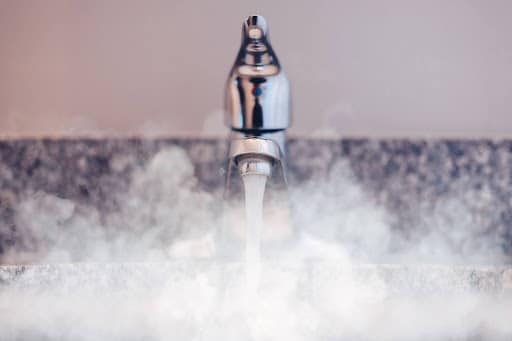In today’s climate-conscious world, the efficiency of household amenities, especially hot water systems, takes on increasing importance. After all, optimised hot water usage doesn’t just lighten the load on the planet—it’s also kind to your bank account. With water heaters being one of the major consumers of energy in a home, enhancing their performance is vital for minimising energy bills.
This guide explores a range of strategies homeowners can implement to boost the efficiency of their water heaters. Employing these methods not only curtails energy wastage but also contributes positively to environmental preservation by decreasing the carbon footprint.
Understanding Your Water Heater: Types and Energy Efficiency
To optimise performance, it’s essential to understand what type of hot water system you’re working with. Each system—whether it’s a traditional tank, tankless, hybrid, or solar—comes with its own pros, cons, and energy profiles.
Traditional tank heaters continuously heat a large volume of water, which can result in unnecessary energy use, especially if the system is larger than your household needs. Tankless heaters, on the other hand, only heat water when required, which helps minimise waste but may require a higher initial investment.
Hybrid systems combine traditional heating with energy-efficient heat pump technology, offering good savings over time but with a higher upfront cost. Meanwhile, solar water heaters rely on renewable energy, making them a top choice for environmentally conscious households, provided your location offers sufficient sunlight.
If you’re unsure whether your current setup suits your needs, take a closer look at how much hot water your household uses. If your hot water system is too big, and what to do about it becomes a critical question. An oversized system leads to energy waste from constantly heating more water than necessary. Downsizing or using smart scheduling to better align heating times with actual usage can help significantly reduce energy consumption. A licensed plumber or energy consultant can help assess your system’s size relative to your usage habits and recommend appropriate adjustments.
Regular Maintenance for Optimal Performance
Just like any other appliance, routine maintenance is crucial in prolonging the lifespan of your water heater and ensuring it operates at peak efficiency. This involves a few straightforward steps: regularly draining the tank to flush out sediment, checking the anode rod to prevent corrosion, and inspecting pressure relief valves. Moreover, setting the thermostat to an optimal temperature—not exceeding 50°C—can trim energy use without sacrificing comfort. Regular maintenance also enables early detection of potential issues, aiding in timely professional intervention when necessary. Signs that it’s time for a professional check-up include inconsistent water temperatures, unusual noises, or visible rust in the water.
Insulation: Retaining Heat and Saving Energy
Insulation plays a key role in maintaining water temperature, thus cutting energy consumption. By insulating hot water pipes, you can reduce heat loss and ensure water stays hot as it travels to taps and showers. This not only saves energy but also shortens the wait time for hot water—every bit counts. Adding a water heater blanket helps to insulate the heater tank, further minimising heat loss. While the initial investment in insulation materials might seem significant, the resulting energy savings often recoup these costs in no time. Homeowners can consider simple DIY projects to wrap existing water heaters, making it an accessible and cost-effective upgrade.
Utilising Energy-Saving Technologies and Smart Solutions
Harnessing modern technology can significantly uplift the energy efficiency of your hot water system. Smart thermostats offer precise control, enabling homeowners to adjust settings remotely and schedule heating times to align with usage, cutting down on needless energy expenditure. Many apps provide insights into water usage patterns, allowing for fine-tuned adjustments to reduce wastage. Continuous advancements in water heater technology promise even greater energy savings, with features like rapid heating elements and advanced heat exchange systems. Additionally, various rebates and incentives are available to encourage the upgrade to energy-efficient models, facilitating initial investment in these cutting-edge appliances.
Behavioural Changes to Lower Hot Water Usage
Sometimes, a few simple tweaks to daily routines can yield considerable savings on hot water usage. Taking shorter showers, for example, offers a significant reduction in water heating demands. Implementing water-saving measures in dishwashing and laundry routines can also make a difference. Encouraging family members to be mindful of usage—like turning off the tap while brushing teeth—can amplify these savings further. The cumulative impact of such small behavioural changes not only reduces energy costs but also fosters a more sustainable household environment.
The Path to Smarter Water Heating
Maximising the performance of your water heater isn’t just about saving money—it’s about making intentional, sustainable choices that benefit your home and the environment. From system upgrades and insulation to routine maintenance and behavioural shifts, there are many ways to improve hot water efficiency without sacrificing comfort.
If your current system feels like overkill for your household needs, it may be time to explore whether downsizing or optimising usage is the right step. If your hot water system is too big and what to do about it is a worthwhile conversation to have with a qualified professional. With the right guidance and tools, you can tailor your setup to be both cost-effective and environmentally responsible.
Taking control of your hot water efficiency today sets the foundation for long-term savings and smarter living, helping you make a meaningful difference.

